 Petzlover
Petzlover Jungle-Bob is originated from United States but Tonkinese is originated from Canada. Both Jungle-Bob and Tonkinese are having almost same weight. Jungle-Bob may live 8 years less than Tonkinese. Both Jungle-Bob and Tonkinese has same litter size. Both Jungle-Bob and Tonkinese requires Moderate Maintenance.
Jungle-Bob is originated from United States but Tonkinese is originated from Canada. Both Jungle-Bob and Tonkinese are having almost same weight. Jungle-Bob may live 8 years less than Tonkinese. Both Jungle-Bob and Tonkinese has same litter size. Both Jungle-Bob and Tonkinese requires Moderate Maintenance.
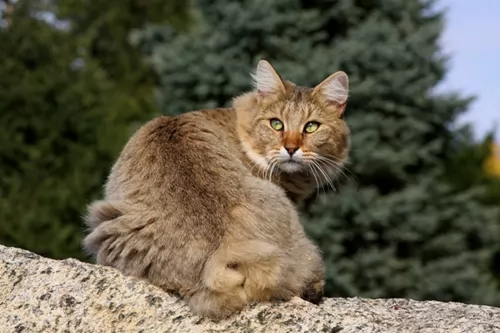 What is notable about this cat is that it can have a Bobcat like tail or it can have a full-length tail. They’re a fairly new breed and have been bred since the early 1990s. The whole purpose of breeding the cat was to develop a jungle cat hybrid with a spotted pattern.
What is notable about this cat is that it can have a Bobcat like tail or it can have a full-length tail. They’re a fairly new breed and have been bred since the early 1990s. The whole purpose of breeding the cat was to develop a jungle cat hybrid with a spotted pattern.
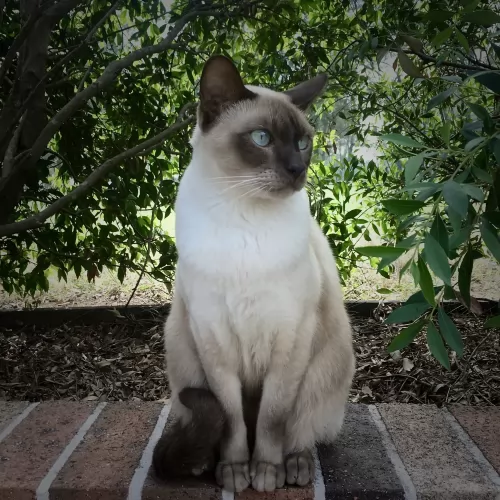 It was about in 1960 that a breeding program was established for these cats. The Tonkinese is a cat that hails from Canada and it was a certain Jane Batlett who was responsible for breeding this cat.
It was about in 1960 that a breeding program was established for these cats. The Tonkinese is a cat that hails from Canada and it was a certain Jane Batlett who was responsible for breeding this cat.
Also, Margaret Conroy, another breeder, set up her breeding program between a Burmese female with a Siamese. Both Conroy and Bartlett worked together on the breed and the Tonkinese came about. The Cat Fanciers Association recognized this cat breed in 1984.
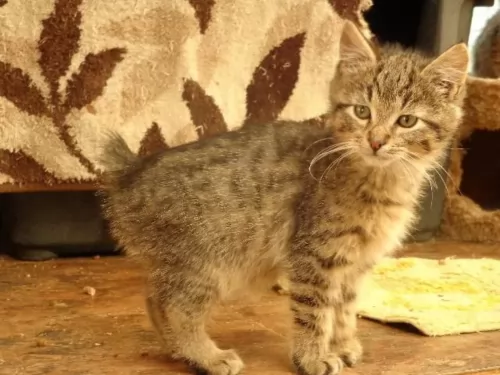 These are big cats and can weigh between 6 and 10kg. The leopard-spotted coat comes in all shades – brown, tawny, gold, silver and black with you not likely to see solid shades.
These are big cats and can weigh between 6 and 10kg. The leopard-spotted coat comes in all shades – brown, tawny, gold, silver and black with you not likely to see solid shades.
The coat can be short or medium-length. The cats have a thick muzzle and he has hooded eyes. The ears are fairly large and placed high o the head. They’re well muscled with long legs with the hind legs being fairly longer than the front legs
The Jungle-Bob loves his food. He loves interactive toys that hold the food and encourage him to think about how to get the food out.
He loves his human family and bonds strongly with them, loving to play rough and tumble games with the kids. He gets on well with children as well as other pets in the house.
You may find your Jungle-Bob being shy and not wanting to be friendly with strangers. They’re intelligent cats and have been known to learn how to open certain doors and cupboards. They can also be taught to walk on a leash.
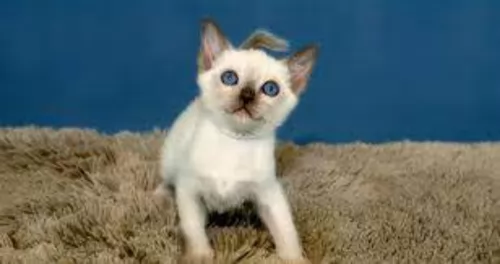 As a medium-sized cat, with a firm, muscular body, your Tonkinese will weigh between 2.5 – 6kg.The head is slightly rounded with fairly broad ears that are set wide apart.
As a medium-sized cat, with a firm, muscular body, your Tonkinese will weigh between 2.5 – 6kg.The head is slightly rounded with fairly broad ears that are set wide apart.
The eyes are bigger than the classic Oriental shape and can range from green to light blue in color.
The coat of the Tonkinese is short and close-lying and is soft and silky to touch. The mask, the ears, legs and tail are all darker than the body.
The Tonkinese cat breed is recognized by the Cat Fanciers' Association in 4 base colors - medium brown, champagne, blue and and platinum.
The Tonkinese cat, with one of its parents being the Siamese cat, just loves giving and receiving attention.
Active and social, he is an excellent choice for families with children and even other pets. They love just seeking out their human companions and lying down where they are.
They’re intelligent felines these, and you can even teach them some simple commands. Because of them being so very social, they don’t like to be left on their own – certainly not for the whole day while you go off to work.
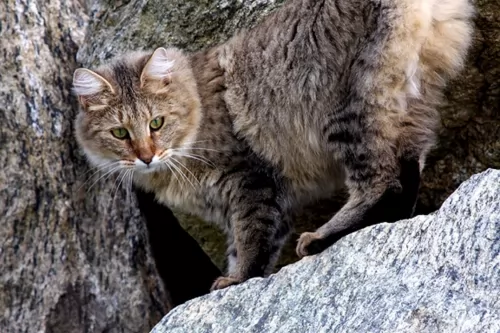 Your Jungle-Bob, just like all cats with a wild side, should have a largish outdoor cage. Keeping a hybrid cat like the Jungle-Bob is far more challenging than keeping a regular domesticated cat.
Your Jungle-Bob, just like all cats with a wild side, should have a largish outdoor cage. Keeping a hybrid cat like the Jungle-Bob is far more challenging than keeping a regular domesticated cat.
Hybrid cats like these are always active and they require lots of exercise. They can learn to walk on a leash.
Hybrid cats like this are made up of many species and they come with lots of interesting fur patterns. but that shouldn't be your motivation for buying one.
Think carefully before you own one of these cats as they’re beautiful for sure, but sometimes they become too much for the owners and then they land up in shelters. Be informed before you invest in one of these cats.
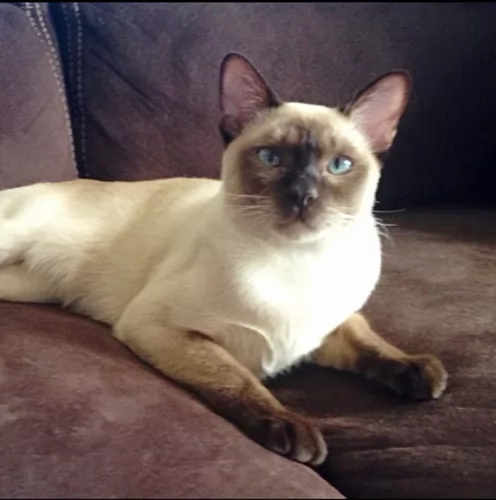 Tonkinese cats can be active and highly entertaining with their antics. When you laugh at them, they are encouraged to perform more.
Tonkinese cats can be active and highly entertaining with their antics. When you laugh at them, they are encouraged to perform more.
They are affectionate and intelligent cats and you will need to have toys for him. When he isn't playing, he likes nothing more than to be petted and pampered by his human family.
Your Tonkinese will get on well with children and other pets, and he generally makes a splendid pet for those who care well for him.
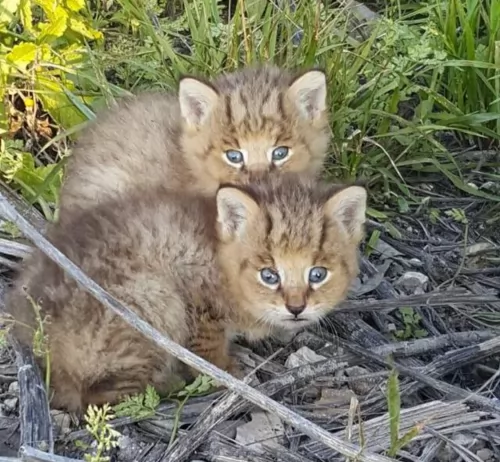 Even a trip to the vet can be a challenge and it can be a frightening experience for a hybrid cat. They may even need to be sedated before the vet can examine them.
Even a trip to the vet can be a challenge and it can be a frightening experience for a hybrid cat. They may even need to be sedated before the vet can examine them.
Also, did you know that in terms of rabies, which can be a fatal disease, it is not positive that these vaccines even work with a hybrid cat? So if your pet is exposed to rabies, it could spell great danger for you and your hybrid pet.
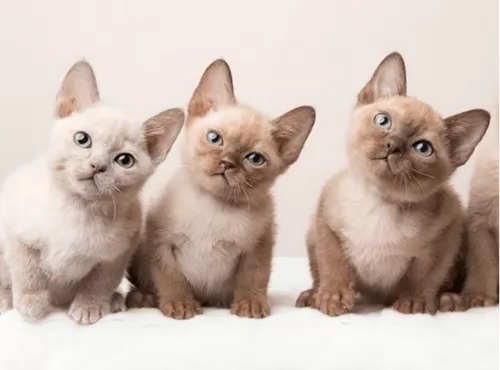 Tonkinese are generally healthy cats but they can be prone to eye problems such as gingvitis.
Tonkinese are generally healthy cats but they can be prone to eye problems such as gingvitis.
Because they are part of the Siamese family, they can succumb to some of the diseases that the Siamese battles with. These are asthma/bronchial disease, heart defects, lymphoma, and crossed eyes.
Lymphoma is linked with feline leukemia, a viral infection, and thankfully, more cats are being vaccinated for feline leukemia, so fortunately it is becoming less common.
Intestinal lymphoma affects the gastrointestinal tract and is the most common type of lymphoma in cats, being more common in older cats. Affected cats can suffer with weight loss, vomiting, and diarrhea. Get your cat to the vet as diagnosing this lymphoma will require the vet finding cancerous cells on microscopic examination.
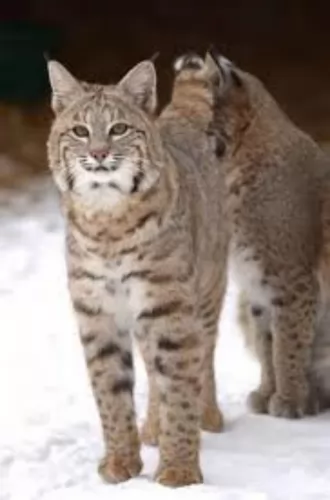 Before you invest in one of these hybrid exotic cats do research because they’re different from your regular domestic cats.
Before you invest in one of these hybrid exotic cats do research because they’re different from your regular domestic cats.
Because they have a wild side, they’re not suited to small apartments. Apart from being both an indoor and outdoor cat, he will require a fairly large outdoor cage with one part dedicated to shade and shelter for him.
Even though you will buy your Jungle Bob a litter box for indoors, remember that even though you train your cat to use it, the wild part of the cat means that he will spray and do his business on your carpets or against your furniture as well.
This is precisely why so many cat shelters are full of these cats. They become a handful for their owners, and their owners just hand them in as a bad experience.
A hybrid cat like the Jungle-Bob has a digestive system not quite the same as your regular domestic cat. It is absolutely imperative that these cats receive a meat diet as they are carnivores.
Keeping such a cat as a pet means you will need to invest in high-quality protein foods that sit well with this cat’s digestive system. A good guide for the Jungle Bob-cat is to steer clear of carbohydrates and feed your cat a protein-rich diet.
It is also a wise move to feed your new kitten the food that he has been eating at the breeder and then to make a gradual change to the best food protein there is.
Speak to your vet if in any kind of doubt. There are excellent high protein, high-quality commercial cat foods available on the market that make feeding a cat convenient as well.
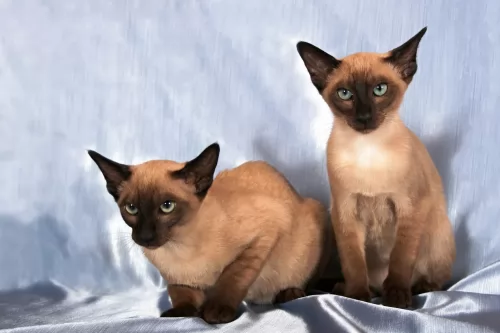 The Tonkinese has a short coat so a brush once a week will be sufficient for this cat as it just helps to brush away dust and loose hairs.
The Tonkinese has a short coat so a brush once a week will be sufficient for this cat as it just helps to brush away dust and loose hairs.
He will need a litter box and this will need to be kept spotlessly clean. Use a small rake, available from your vet or local pet shop, to rake up the cat’s feces.
When you first bring your Tonkinese cat home, you will at least need some of the basics to ensure his wellbeing. These are -
sleeping equipment – baskets or cushions in a nice warm, dry place for your cat.
A cat tree for climbing and a scratching post. Cats are natural scratchers so you can’t get angry with your cat for scratching. Instead, invest in a scratching post so that he doesn’t use your furniture to scratch on.
Food is such an important part of caring for a cat. The best type of cat food can ensure your cat has a strong immune system that allows him to not succumb to every cat sickness there is.
Cats are carnivores so ensure he has food high in meat. Sometimes it can be costly, but try to provide your cat with the best, most high-quality cat foods there are to ensure his good health and happiness.
A cat needs a constant supply of fresh, cool water night and day. The water should be changed regularly.